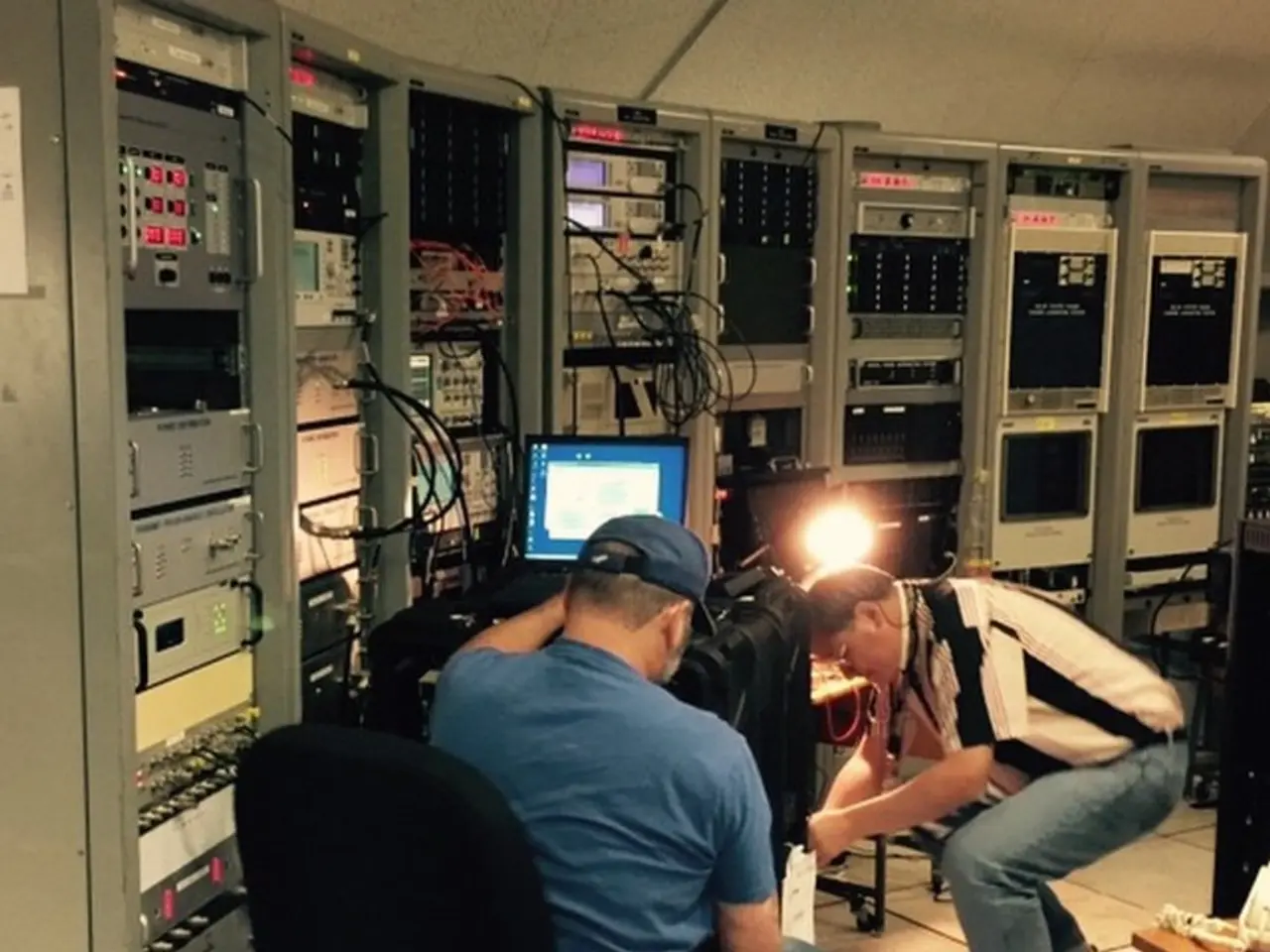North Korean IT worker scam mastermind sentenced to 8.5 years in jail for $17 million laptop fraud
In a significant development, Christina Marie Chapman was sentenced to 8 and a half years in prison, 3 years of supervised release, and ordered to forfeit $284,555.92, following her guilty plea in February. Chapman had pleaded guilty to conspiracy to commit wire fraud, aggravated identity theft, and conspiracy to launder monetary instruments.
The US Attorney's Office imposed a $176,850 judgment on Chapman, marking the conclusion of one of the largest-ever North Korean IT worker scams prosecuted by the Justice Department. The scam involved Chapman helping her fellow fraudsters land jobs at over 300 American companies, including Fortune 500 corporations, a top-five major television network, a Silicon Valley technology company, an aerospace manufacturer, an American car maker, a luxury retail store, and a media and entertainment company.
The fake IT workers also tried to obtain employment with two different US government agencies on three different occasions. Chapman ran a laptop farm from her home from October 2020 to October 2023, with more than 90 computers seized from her home after a search warrant was executed in October 2023.
As the threat of North Korean IT worker scams continues to pose a significant risk to U.S. companies, it is crucial for organisations to adopt a multi-layered approach to protect themselves. This approach should focus on stringent identity verification, ongoing monitoring, and quick response to suspicious activity.
Key protective measures include rigorous vetting of remote IT workers and vendors, video-based identity verification, monitoring user behavior continuously, maintaining robust internal controls and training, and responding rapidly to intelligence and incidents.
By implementing these measures, organisations can reduce their risk exposure from these advanced scams that have targeted hundreds of U.S. companies, including high-profile brand names in various sectors. It is essential for HR and hiring teams to be educated about these sophisticated scams, which may involve AI-generated resumes and photos, voice-changing software, scripted interviews, and hired locals posing as candidates during video calls.
Organisations should also be alert to schemes involving U.S.-based facilitators who operate “laptop farms” — physical locations where company-issued laptops are stationed but remotely controlled by North Korean workers overseas. Law enforcement has seized hundreds of such devices connected to these operations.
In conclusion, the Chapman case serves as a stark reminder of the importance of vigilance and proactive measures in protecting against North Korean IT worker scams. By adopting a comprehensive approach to vetting, monitoring, and responding to potential threats, companies can significantly reduce their vulnerability to such sophisticated scams.
[1] [Source] [2] [Source] [3] [Source] [4] [Source]
- The sentencing of Christina Marie Chapman highlights the need for enhanced cybersecurity measures, as her actions were part of one of the largest-ever North Korean IT worker scams.
- To protect themselves from such scams, organizations should adopt a multi-layered approach that emphasizes stringent identity verification, ongoing monitoring, and quick response to suspicious activity.
- This approach should include rigorous vetting of remote IT workers and vendors, video-based identity verification, continuous user behavior monitoring, robust internal controls and training, and rapid response to intelligence and incidents.
- Organizations should also be alert to schemes involving U.S.-based facilitators who run "laptop farms" and remote control of company-issued laptops by North Korean workers overseas.




